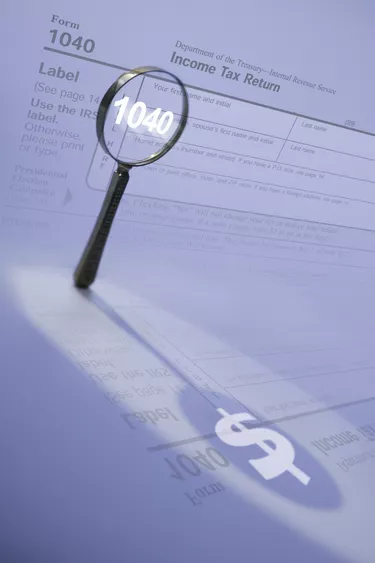
A lien on an asset gives the creditor that holds the lien a security interest in the asset. For example, if you finance a new car purchase, your lender places a lien on the car. The lien gives the lender the ability to repossess the car should you stop making payments. When you pay off the car, the lender releases the lien and you own the vehicle free and clear. Creditors, such as the Internal Revenue Service, can also place liens on your assets if you fail to pay your debts.
Tax Lien
Video of the Day
Most creditors must win a lawsuit against you before they earn the legal right to attach a lien to any of your assets. The IRS, however, is one notable exception to this rule. Because the IRS is a government agency, it can attach a lien to your assets without first obtaining permission through the courts. Tax liens also differ from other liens in that they encompass all of your assets. Thus, if the IRS places a tax lien against you, the lien attaches to all motor vehicles you own and any future cars you purchase while the lien is in effect.
Video of the Day
Preventing a Lien
The IRS does not spring liens on taxpayers by surprise. Before it levies a tax lien against you, the IRS will send you a tax bill. If you do not pay the debt or contact the IRS and propose a payment plan, the IRS will send you written notice of its intent to file a lien against you. You must immediately contact the IRS about payment after receiving this notice in order to prevent the tax lien from encumbering your vehicle's title.
Considerations
Just because the IRS has a lien against your car, that does not guarantee that it will sell the car. It is both time consuming and financially draining for the IRS to seize assets from debtors. The IRS can only seize the equity you have in an asset. For example, if your car is worth $30,000 and you owe your lender $25,000, you only have $5,000 worth of equity in the vehicle and the IRS is not likely to seize it. If, however, you already paid off your auto loan, you own your car free and clear -- making the IRS more likely to repossess the vehicle, sell it and apply the proceeds to your unpaid tax debt.
Time Frame
The IRS cannot leave a lien attached to your car indefinitely. Tax liens are governed by a 10-year statute of limitations. This means that after 10 years the lien is no longer enforceable. The debt you owe to the IRS does not vanish after the 10-year statute of limitations passes, but the IRS loses its ability to seize your assets as payment.